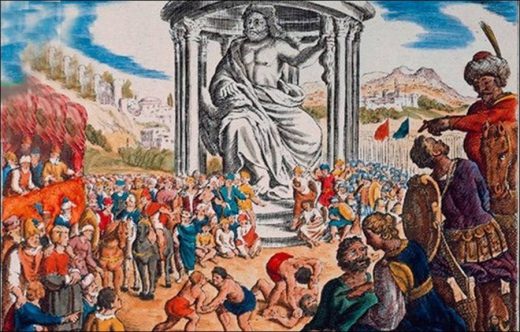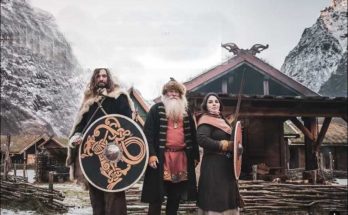The Olympics held in ancient Greece were held in the sanctuary of Olympia, to which it owes its name. While the administration of this area was in Pisa, it passed to the city of Elis after the sovereignty struggles. Thus, the Olympia Games, which started under the rule of Pisa, changed hands when the sanctuary passed to the city-state of Elis.
With his passing to Elis, the prestige and popularity of the Olympia Games began to increase. The Olympics were held every 4 years in the ancient world. At first, the referees and judges, called Hellanodikai, who numbered ten, were chosen by lottery in one of the three gymnasiums in the city of Elis 10 months before the games were held. Although the number of these 10 referees increased later on, their duties remained the same.
Their duties were clear: the full implementation of the rules of the games, the punishment of non-compliance players and the management of the 30-day training period before the games. Athletes and trainers who did not obey the rules were not punished with civil rules such as ban and disqualification, as today, they were whipped in front of the public by whippers who were directly employed for this job. There were also conditions for participation in the Olympia Games.
According to these conditions, it was necessary to be a man, to belong to a city-state and simply phyle, which means tribe or clan in Greek, to be born free, to have legitimate parents, and to have not murdered. Strict rules prevailed, non-Greek, female, and slave-born were not allowed to participate. These conditions later became more inclusive, but the status of women and slaves did not change at all. A peace was declared between the participating states that would last until the end of the games.
Athletes participating in the Olympia Games had to be present in these training areas 30 days before the tournament. Players would come to official training sessions and train for 30 days, learning the rules. The arbitrators and judges named Hellanodikai, on the other hand, learned the rules well from their predecessors and sought to act fairly.
The games began with a ritual procession march from the city of Elis to Olympia. The event lasted only 5 days and during these 5 days there were sacrifices, sports competitions and banquets. What we know as the Olympic torch was a fire lit in the Temple of Zeus next to the area where the ceremonies took place.
The first activity that followed the parade was the swearing-in ceremony. Athletes and their relatives would swear that they would not commit crimes against the Olympia Games and that the athlete had been preparing for the competitions for some time. Hellanodikai, on the other hand, swore that they would not cheat at the games, that they would be fair when choosing the youngsters and donkeys for the mounted competitions, that they would not take bribes or share what they learned about the athletes.
There were two categories in the games, namely boys aged 20 and over and children aged 17-19. Since there were no precise age-determining factors such as bone measurement, overdeveloped adolescents were also sometimes confused and put into the male category.
Visits: 477



